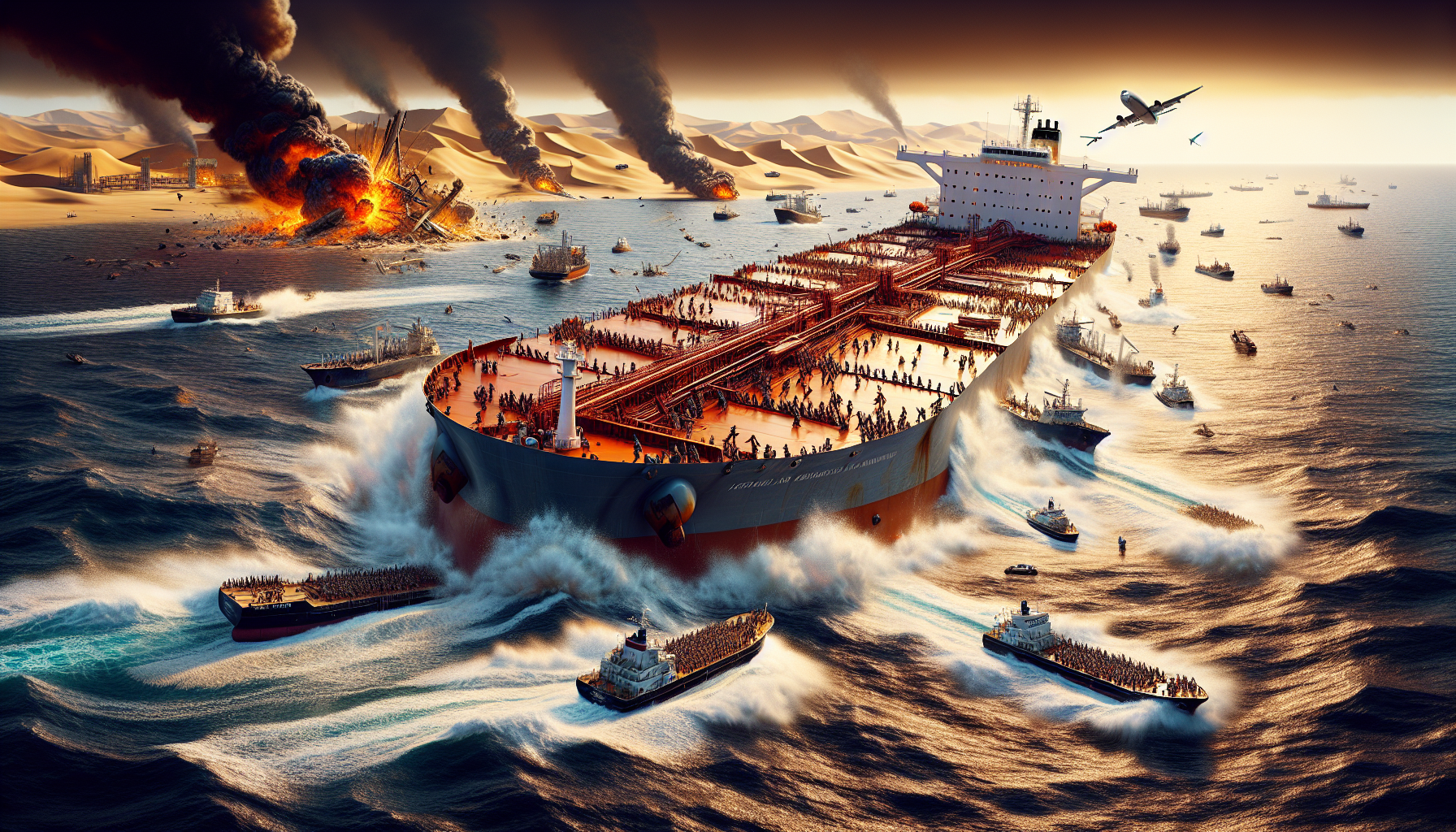
Ah, the Strait of Hormuz, where oil and geopolitics tango in a never-ending waltz of chaos. This week’s episode features a delightful collision of two oil tankers, Adalynn and Front Eagle, blamed on navigational errors. But who are we kidding? Let’s pretend GPS interference is an innocent bystander and not the technological equivalent of a prankster moving street signs in a dense fog.
The UAE, ever the diplomat, assures us this incident has nothing to do with the Israel-Iran squabble. Sure, because nothing says “peaceful times” like a fiery tanker collision in one of the world’s most militarized waters. The Emirati government quickly evacuated the crew, and thankfully, no injuries were reported—except maybe to the fragile egos of those who still believe in the infallibility of modern navigation systems.
Meanwhile, Frontline, the owner of Front Eagle, insists this was purely a “navigational incident.” Of course, let’s disregard the 1,000 vessels reportedly suffering GPS hallucinations since regional tensions escalated. Windward, a maritime analytics firm, reports these vessels have been receiving coordinates worthy of a Salvador Dalí painting. The Strait of Hormuz, responsible for a third of global seaborne crude and 20% of liquefied natural gas, is now a playground for military-grade spoofers.
Jean-Charles Gordon of Kpler observes that ships are reporting positions as plausible as a politician’s promise. He describes it as “electronic warfare,” a term that should send shivers down any oil executive’s spine. But fret not, ships have backup systems. Probably as reliable as a backup parachute made of tissue paper.
With freight rates doubling faster than a central bank’s inflation forecast, shipowners are understandably hesitant to play Russian roulette with their vessels. Jeff McGee from Makai Marine Advisors notes the skyrocketing costs, a testament to market confidence in the region’s stability—or lack thereof.
Greenpeace, always ready with a sobering dose of reality, reports a six-square-mile oil slick, painting the Gulf’s waters with the black brush of environmental disaster. Farah Al Hattab reminds us that these spills are hardly rare, much like the predictable fallout from ignoring the region’s simmering tensions.
So, as the world watches the Strait of Hormuz with bated breath, one must marvel at the optimism of those who believe this is just a minor hiccup in the global energy supply chain. After all, history has shown us that when it comes to oil and geopolitics, the script rarely changes; only the actors do.


